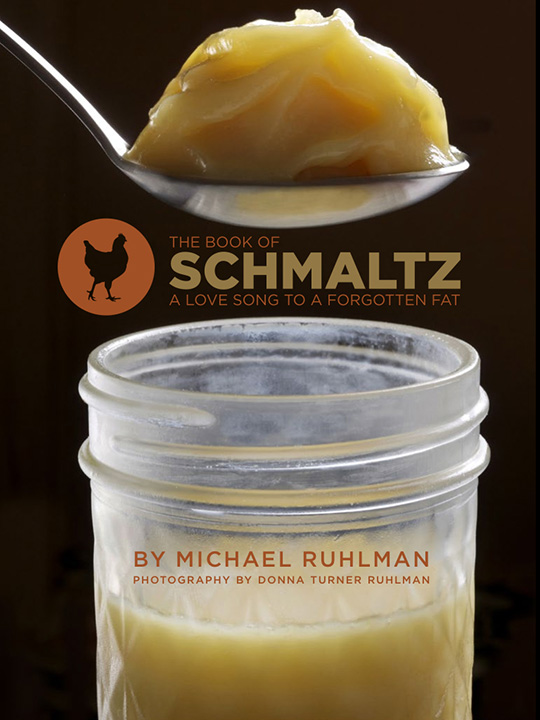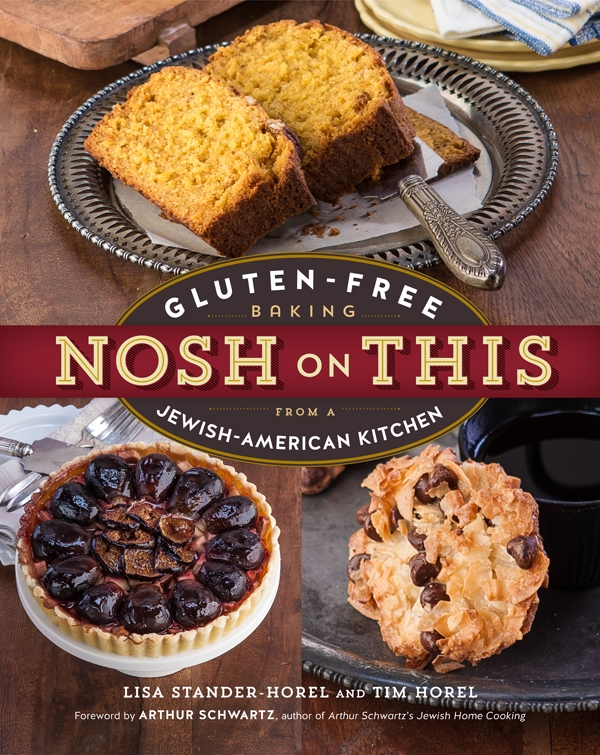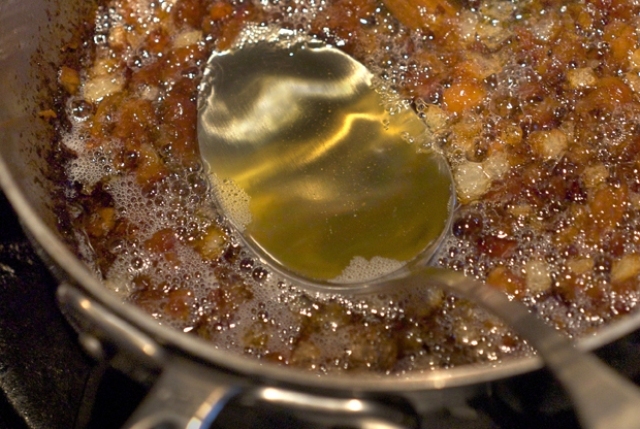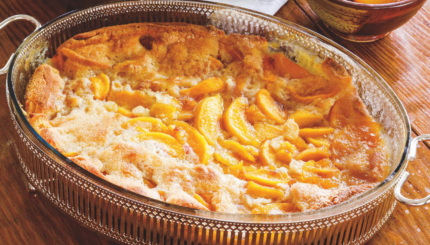‘Tis the season of endless Jewish holidays, back to school frenzy, an abundance of apples…and also niche Jewish cookbooks. With the releases of
The Book of Schmaltz: Love Song to a Forgotten Fat
and
Nosh on This: Gluten-Free Baking from a Jewish American Kitchen
we add two fascinating but narrowly focused cookbooks to the collection.
I love schmaltz, and so I was pretty excited to receive a copy of The Book of Schmaltz. You should know: I keep several kinds of schmaltz in my freezer at any given moment, and love to find ways to incorporate it into a variety of dishes, so this book couldn’t be more perfect for a fat-lovin’ gal like me.

The book contains recipes for all the classics you would expect including traditional chopped liver, chicken soup with matzo balls, and kreplach. Some of the more surprising recipes included in the book are schmaltz-roasted potatoes with onion and rosemary, chicken sausage and even oatmeal cookies with dried cherries (I will be trying this recipe very soon).
Ever heard of helzel? Well I hadn’t until I saw it listed under “Traditional Recipes.” Ruhlman’s version calls for stuffing kiskhe into chicken skin – yum! Though when my husband and I called the grandmothers to consult about this long–lost dish we heard that their versions of traditional helzel was prepared by stuffing a turkey neck. In fact, my Grandma Phoebe shared that her grandmother (my great-great grandmother) would include helzel in her weekly Shabbat cholent .
The Nosher celebrates the traditions and recipes that have brought Jews together for centuries. Donate today to keep The Nosher's stories and recipes accessible to all.
But before James Beard Award-winning author Michael Ruhlman gets into the recipes themselves, he actually gives a easy-to-follow guide to making your own homemade, perfectly rendered chicken fat – very useful indeed especially for the schmaltz virgin.
What a great gift for any of your family or friends who loves traditional Ashkenazi fare and isn’t afraid a little fat.
The Book of Schmaltz: Love Song to a Forgotten Fat, Michael Ruhlman and Donna Turner Ruhlman, (August 2013)
Schmaltz is not the only ingredient I gush over: I also gush for gluten. I have written before about my distaste for the gluten-free fad we are currently experiencing. But I do feel for my fellow gluten lovers who are unable to consume gluten-laden products due to medical reasons, which includes authors Lisa Stander-Horel and Tim Horel, two bakers dedicated to high-quality gluten-free baked goods. Their cookbook Nosh on This was also just released.

In the book’s foreword, fellow cookbook author Arthur Schwartz writes:
“The tragic irony is that we Jews are a people with an extensive repertoire of high-gluten delicacies, many of which we regard as cultural icons. We even have special prayers that we say before eating pastry.”
I never thought of it in this way but it is true: we are a people who value breads and sweets. So what is a gluten-free Jew to do!? In Lisa Stanger-Horel and Tim Horel’s case, they perfected a wide range of baked goods including Jewish classics like chocolate babka, honey cake, challah, rugelach and hamantaschen. Some other stand-outs? “Marizipany Gooey Brownies,” apple pie, and even éclairs and tiramisu.
Love eating matzo at Passover but can’t handle the gluten? They’ve got a recipe for that too.
For the Jewish baker the ultimate compliment is always, “it’s so good, it doesn’t even taste pareve.” These recipes look as mouth-watering as their gluten-laden counterparts. What a wonderful cookbook for the baker in your life who needs to stay away from gluten.
Nosh on This: Gluten-Free Baking from a Jewish American Kitchen, Lisa Stander-Horel and Tim Horel (September 3, 2013)
Ashkenazi
Pronounced: AHSH-ken-AH-zee, Origin: Hebrew, Jews of Central and Eastern European origin.

Help us keep Jewish knowledge accessible to millions of people around the world.
Your donation to My Jewish Learning fuels endless journeys of Jewish discovery. With your help, My Jewish Learning can continue to provide nonstop opportunities for learning, connection and growth.
cholent
Pronounced: CHO-lent, Origin: Yiddish, but believed to be derived from French, a slow-cooked stew traditionally prepared for and left cooking over Shabbat.

Help us keep Jewish knowledge accessible to millions of people around the world.
Your donation to My Jewish Learning fuels endless journeys of Jewish discovery. With your help, My Jewish Learning can continue to provide nonstop opportunities for learning, connection and growth.
Shabbat
Pronounced: shuh-BAHT or shah-BAHT, Origin: Hebrew, the Sabbath, from sundown Friday to sundown Saturday.

Help us keep Jewish knowledge accessible to millions of people around the world.
Your donation to My Jewish Learning fuels endless journeys of Jewish discovery. With your help, My Jewish Learning can continue to provide nonstop opportunities for learning, connection and growth.



